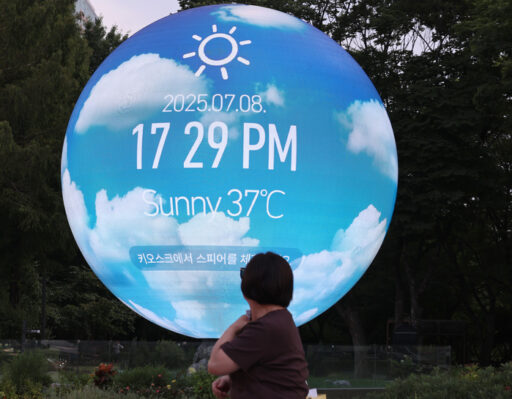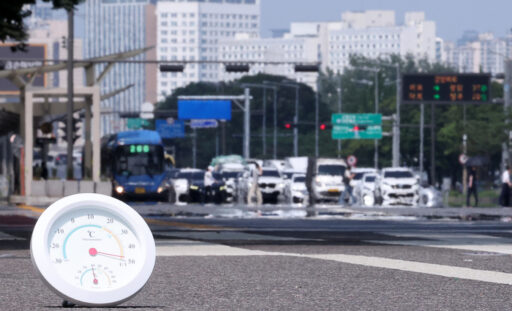Seoul Sets Record High Temperature in Early July… Heatwave Continues
On July 8, the maximum temperature in Seoul soared to 37.8 degrees, breaking the record for the highest temperature in early July since modern meteorological observations began in 1907.
This figure exceeds the previous record of 36.8 degrees set on July 9, 1939, by more than 1 degree, indicating that the heatwave has reached a historic level.

According to the Korea Meteorological Administration, the extreme heat is expected to persist for some time.
On Wednesday, July 9, the maximum temperature in Seoul is predicted to rise to 36 degrees, with a "heat dome" expected to envelop the entire nation.
The minimum temperature on the morning of the 9th is forecasted to be between 21 and 27 degrees, while the maximum temperature during the day is projected to be between 26 and 36 degrees, significantly higher than the average (minimum 19 to 22 degrees, maximum 25 to 30 degrees).
Causes of Heatwave and Health Threat… Government Measures Being Established
This record-setting heatwave is analyzed to be caused by a phenomenon where the easterly winds blowing in from the East Coast become hot and dry after crossing the Taebaek Mountains.

Meteorological experts have stated that as this phenomenon continues, cities across the nation, including Seoul, Gwangju, Daejeon, Jeonju, and Cheongju, can expect temperatures exceeding 35 degrees.
There have also been casualties due to the extreme heat. On July 7, a tragic incident occurred in Gumi, North Gyeongsang Province, where a foreign worker died due to heat-related illness.
According to the Korea Disease Control and Prevention Agency, among the 875 heat-related illness cases reported from May 15 to July 6, 290 occurred in indoor and outdoor workplaces.
The Ministry of the Interior and Safety convened a meeting with relevant agencies to primarily assess the implementation of heat protection measures for workers.
The Korea Meteorological Administration cautioned, "The possibility of heat-related illnesses is high, so outdoor activities and outings should be minimized. Infants, the elderly, pregnant women, and individuals with chronic illnesses are particularly vulnerable to heat-related diseases, so please pay special attention to health management."


